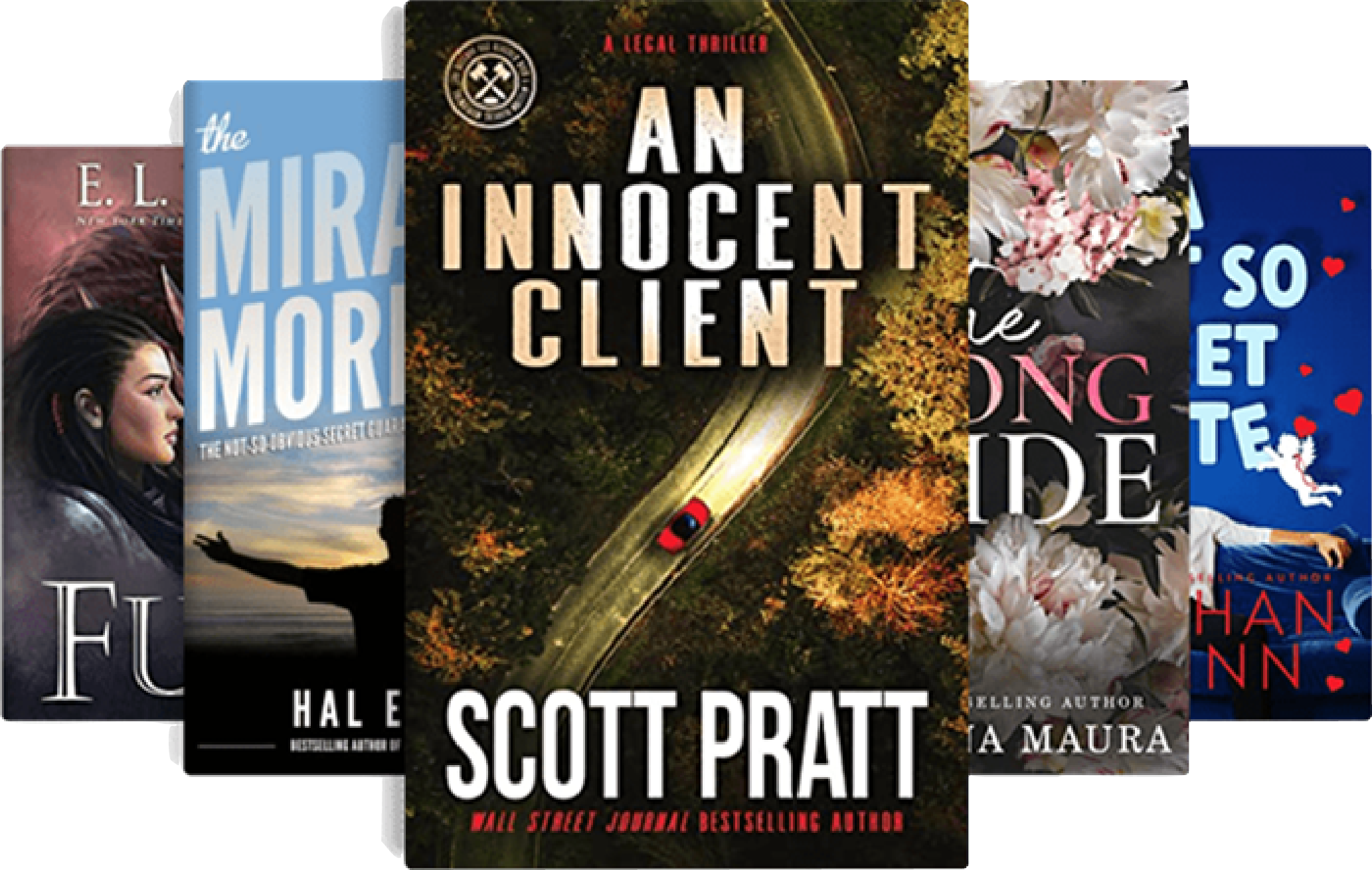So, you want to be a book editor? First off, welcome. It’s an occasionally maddening world where people outside publishing think editing is just fixing typos, circling run-on sentences, and maybe nagging about commas. And sure, some of that is true. But honestly? Editing is much bigger because it’s all about helping writers find their best version of a story, even when that means asking hard questions or suggesting changes that sting a little at first.
Many newcomers imagine the role with a red pen in hand, like a schoolteacher. That idea usually lasts about a week. What quickly becomes clear is that being an editor is part detective work, part therapist, and part craftsperson. If that excites — or at least intrigues — keep reading. This newcomer’s guide gives beginners the real picture, not the movie version, and shows why learning to write an eBook is often part of the journey.
Table of Contents
ToggleWhat an Editor Really Does
A manuscript arrives. It can be both a polished novel or maybe it’s a messy memoir draft, maybe it’s 300 pages of passion with little punctuation. The task? Figure out what’s working, what isn’t, and how to guide the author without rewriting the book for them.

Layers of Editing to Expect:
Here are a few layers of editing to expect:
Developmental editing:
Big-picture work. Focus on structure, pacing, and whether the story even makes sense.
Line editing:
More sentence-level detail. Are the words clunky? Is the tone off? Could the sentence sing instead of stumble?
Copyediting:
The cleanup stage. Fix grammar, check for consistency, make sure the spelling of a character’s name doesn’t change halfway through.
Proofreading:
Final polish before the book hits print or digital shelves.
Think of it like building a house. Developmental editing is drawing up the blueprint. Line editing is arranging the furniture. Copyediting is fixing cracks in the walls. Proofreading? That’s sweeping the floor before the guests show up.
The Skills that Actually Matter
Yes, grammar is important. Without knowing the difference between its and it’s, an editor will struggle. But grammar alone won’t carry the role very far. Editing is about more than rules — it’s about judgment and empathy.

The Nerdy Bits
Before diving into the softer side of editing, it helps to cover the technical skills first. These are the nuts and bolts every editor needs to master.
Grammar, spelling, punctuation:
These essentials ensure clarity, maintain consistency, and provide editors with the foundation needed for professional editing.
Style guides:
Chicago Manual of Style, AP, or a publisher’s house rules.
Research:
Double-checking facts when needed. (Yes, sometimes it really is necessary to Google things like “Did toothpaste exist in the 1800s?”)
The Human Bits
Here’s where many newcomers slip. Authors pour themselves into their work. Telling someone their favorite chapter drags or their dialogue feels wooden isn’t easy. Editors need:
- Patience, because rewrites are part of the process.
- Communication skills, so feedback lands gently instead of crushing spirits.
- Empathy, to understand the intent behind messy writing.
- Time management, because deadlines don’t care about anyone’s personal schedule.
There was once a first-time author who rewrote a chapter six times. Each draft was slightly better, but the writer disliked nearly every suggestion — until the seventh version clicked. That’s editing: not one big “fix,” but nudges, pushes, and encourages until the puzzle comes together.
How Beginners Get Started
No golden ticket into publishing is required. What’s needed is practice and persistence. For those asking ‘How to become an editor for books,’ the path begins with learning, practicing, and slowly building credibility.

Do You Need a Degree?
Degrees in journalism or English are helpful, but many editors learn through workshops, classes, or just getting their hands dirty and editing for free at first. Even working on a friend’s fanfiction can teach you more about dialogue and pacing than a lecture in class.
Build a Portfolio
Start small. Blog posts. Short stories. Maybe edit a local nonprofit’s newsletter. Save those “before and after” samples. When applying for gigs, proof of ability matters most.
Network without Feeling Awkward
This part often intimidates newcomers, but connections matter. Attend book fairs. Join online editor groups. Comment in writing forums. Introduce yourself as someone learning the ropes. Publishing is surprisingly small — one friendly conversation can open unexpected doors.
A Day in the Life of an Editor
It’s not glamorous. Most days involve long stretches of reading, marking, and rereading. There’s usually coffee nearby, sometimes music, and often the sense of having read the same sentence ten times.
On a typical day an editor might:
- Read 30–40 pages of a manuscript.
- Leave notes about pacing or character consistency.
- Hop on a call with an author to explain edits.
- Check a style sheet to make sure “gray” is spelled consistently.
- Review changes after the author revises.
Tools? Microsoft Word’s ‘Track Changes’ still rules, though many authors prefer Google Docs for real-time collaboration. Scrivener works for big projects. Add-ons like PerfectIt help, but shouldn’t be relied on too heavily. The sharpest tool is still the editor’s own eye.
The Hard Parts Nobody Warns You About
Editing isn’t all cozy reading sessions. Some challenges hit harder than expected.
Top 3 Challenges
Every job has its hurdles, and editing is no exception. Beyond the red pen and style guides, these challenges test both skill and patience.
#1 Imposter syndrome:
That nagging feeling of not being qualified enough. Many editors — both rookies and veterans — feel it sometimes.
#2 Authors who resist feedback:
Some treat every comment like a personal attack. The skill lies in softening delivery without watering down the truth.
#3 Deadlines:
Editing is time-consuming. Manuscripts often arrive late but are still expected back on time.
There was once a client who sent 90,000 words a week late and asked for edits in three days. The answer had to be no. Boundaries are part of the job.
Growing into the Role
Editing is a career to grow into. No one expects expertise right away, but progress builds over time.
Find a Niche
Editors often specialize. Romance, nonfiction, children’s books — choosing a lane makes it easier to market skills.
Stay a Student
Language shifts. Trends change. What readers love today may feel dated in five years. Staying current through webinars, workshops, and reading widely is essential.
Freelance v. In-house
- Freelance editing means freedom, variety, and running a business. The downside? Chasing invoices and managing clients.
- In-house editing means steady paychecks and colleagues, but less freedom to choose projects.
Neither is better; the right fit depends on goals and personality. For those researching ‘How to become an editor for books,’ this newcomer’s guide shows that growth happens in many directions.
Tips to Make Editing Less Painful
A few small habits keep this job enjoyable:
- Read for fun too. Don’t let editing steal the joy of books.
- Find a mentor or at least a peer group. Feedback from other editors is invaluable.
- Respect the author’s voice. The job is to shape, not to rewrite.
- Celebrate milestones. Finishing a tough project deserves pizza, wine, or at least a long nap.
Final Thoughts
Although it isn’t glamorous in the Hollywood sense, being a book editor is incredibly fulfilling. The silent creators of stories that readers adore are editors. They develop as thinkers, communicators, and storytellers in addition to becoming professionals as they see sloppy drafts become living, breathing books.
For newcomers: don’t stress about being perfect. Nobody is. Editing is a craft learned by doing. Take small steps, keep learning, and remember — authors need editors more than they realize. Without editors, many books would remain rough drafts. With editors, they have a chance to shine.
Ready to turn your manuscript into a masterpiece? Connect with Ghostwriting Help today and get expert editing support that brings your story to life.
FAQs
Q1: Do book editors only correct grammar mistakes?
No. Editors focus on grammar, but they also refine structure, tone, pacing, and clarity, helping authors deliver polished manuscripts readers can easily understand and enjoy.
Q2: Can someone become a book editor without a degree?
Yes. While degrees in English or journalism help, many editors train through workshops, courses, or practice, proving ability with portfolios and hands-on editing experience.
Q3: How does an editor handle disagreements with authors?
Editors use clear communication, empathy, and professionalism. The goal is collaboration, ensuring authorial voice stays intact while improving the manuscript’s overall readability and quality.
Q4: Is freelancing better than in-house editing?
It depends. Freelancers enjoy flexibility and variety but manage their own clients, while in-house editors gain stability and structure yet often have less control over projects.
Q5: What tools do editors commonly use for their work?
Editors rely on Microsoft Word’s Track Changes, Google Docs, and Scrivener. Tools like PerfectIt support consistency, but judgment, language skills, and critical thinking remain most important.





